Toyota RAV4 (XA40) 2013-2018 Service Manual: Emission control system
Parts location
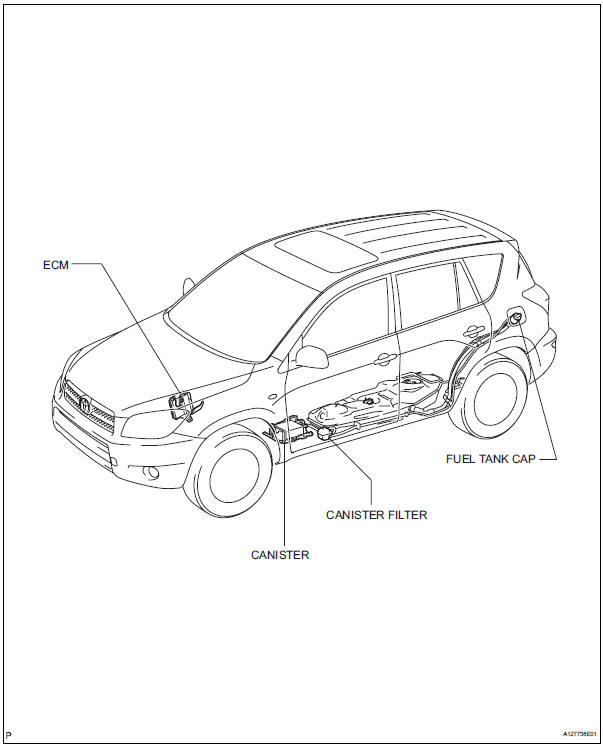
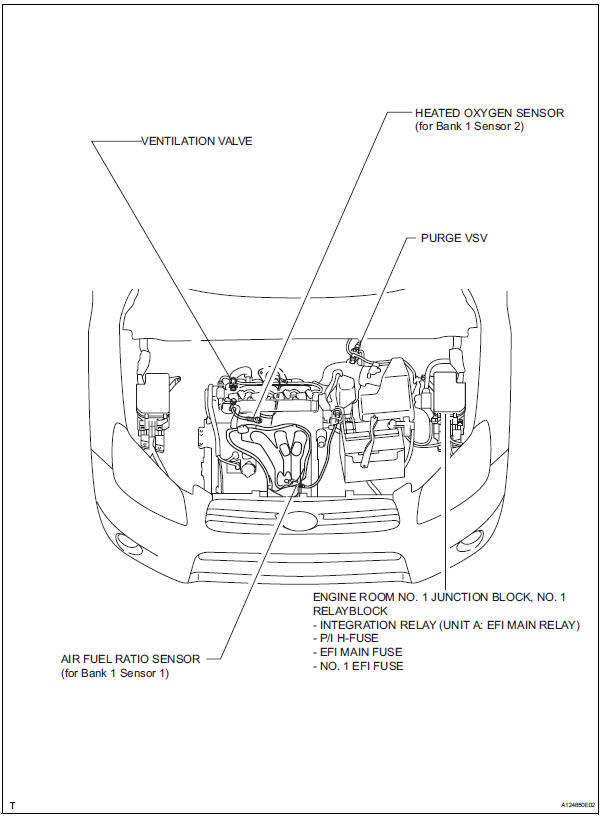
System diagram
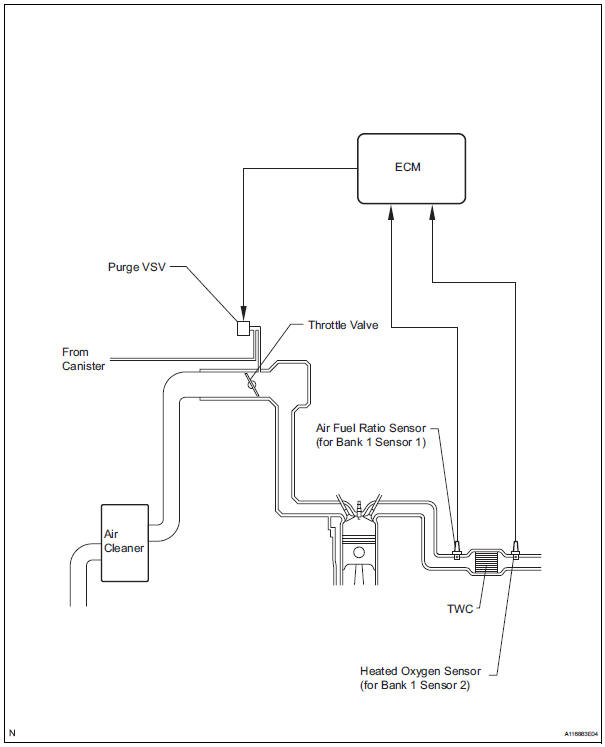
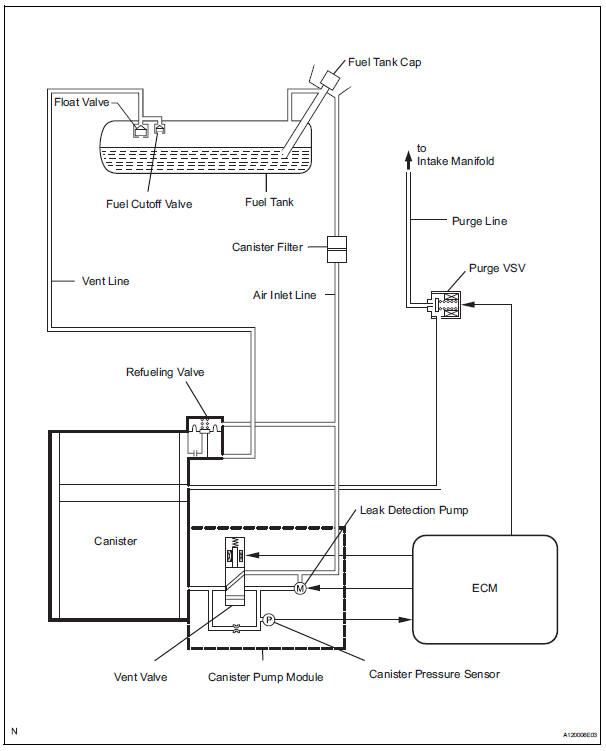
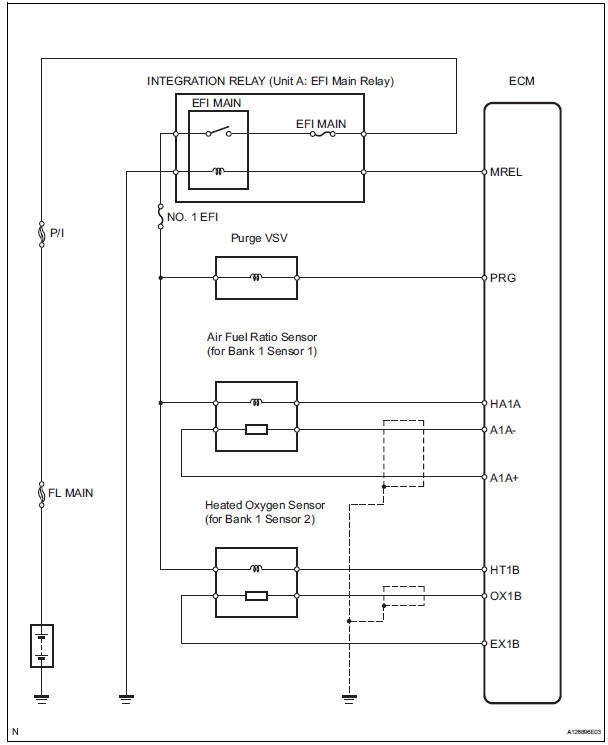
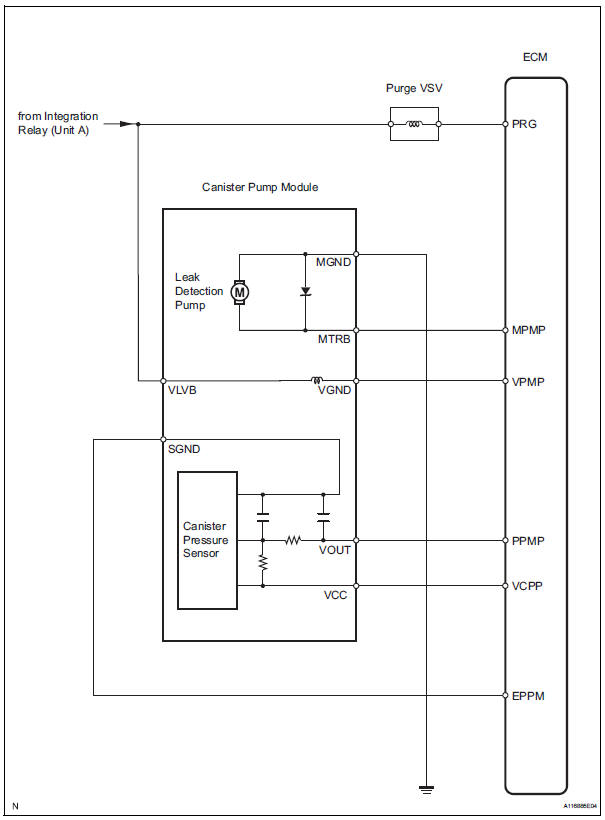
On-vehicle inspection
- Check fuel cut rpm
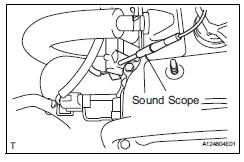
- Increase the engine speed to at least 3,500 rpm.
- Use a sound scope to check for injector operating noise.
- Check that the operating sounds stop momentarily and then resume when the throttle lever is released.
Hint:
Measure with the a/c off.
Fuel return rpm: 1,400 rpm
- Check for leaks
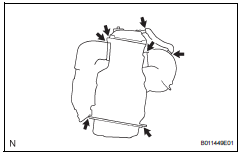
- Visually check that the hoses, connections and gaskets have no cracks, leaks or damage.
Notice:
- Detachment or other problems with the engine oil dipstick, filler cap, pcv hose and other components may cause the engine to run improperly.
- Disconnection, looseness or cracks in the parts of the air induction system between the throttle body and cylinder head will allow air suction and cause an engine failure or engine malfunctions.
If the result is not as specified, replace parts as necessary.
- Check line and connectors
- Visually check for loose connections, sharp bends or damage.
- Check fuel tank assembly
- Visually check for deformation, cracks or fuel leakage.
- Check fuel tank and vent line
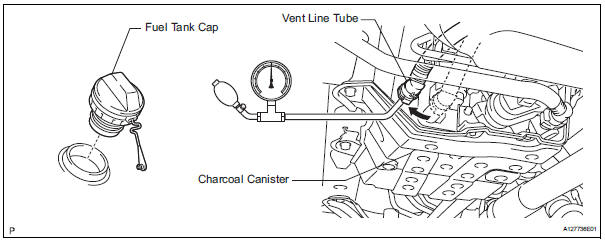
- Disconnect the vent line tube from the canister.
- Connect a pressure gauge to the vent line tube.
- Apply 4 kpa (41 kgf/cm2, 30 mmhg) of pressure to the vent line of the fuel tank.
Hint:
Perform this inspection with the fuel tank less than 90% full. When the fuel tank is full, the fuel cutoff valve closes and pressure is released through the 1.5 Mm orifice. As a result, when the fuel tank cap is removed, the pressure does not decrease smoothly.
- Check that the fuel tank pressure is maintained for some time, and does not decrease immediately.
Hint:
If the pressure decreases immediately, one of the following may be the cause:
- The fuel tank cap is not completely tightened.
- The fuel tank cap is damaged.
- Air is leaking from the vent line.
- The fuel tank is damaged.
- When the fuel tank cap is removed, check that pressure is released smoothly.
Hint:
If the pressure does not drop, replace the fuel tank assembly.
- Reconnect the vent line tube to the canister.
- Check air inlet line
- Disconnect the air inlet line hose from the charcoal canister.
- Check that air flows freely into the air inlet line.
Hint:
If air does not flow freely into the air inlet line, repair or replace it.
- Reconnect the air inlet line hose to the charcoal canister.
 Canister
Canister
Components
removal
Disconnect cable from negative battery
terminal
Caution:
Wait at least 90 seconds after disconnecting the
cable from the negative (-) battery terminal to
prevent ai ...
Other materials:
Crankshaft position sensor "A"
Description
The crankshaft position (ckp) sensor system consists of a ckp sensor plate
and a pickup coil.
The sensor plate has 34 teeth and is installed on the crankshaft. The pickup
coil is made of wound copper
wire, an iron core and magnet. The sensor plate rotates and, as each tooth ...
Door lock position circuit
Description
This circuit detects the state of the door lock detection sensor and sends it
to the main body ecu.
Wiring diagram
Inspection procedure
Read value of intelligent tester (door lock position)
Connect the intelligent tester (with can vim) to the
dlc3.
Turn the ignitio ...
For your information
Main owner’s manual
Please note that this manual applies to all models and all equipment,
including
options. Therefore, you may find some explanations for equipment not
installed on your vehicle.
All specifications provided in this manual are current at the time of printing.
However, be ...

